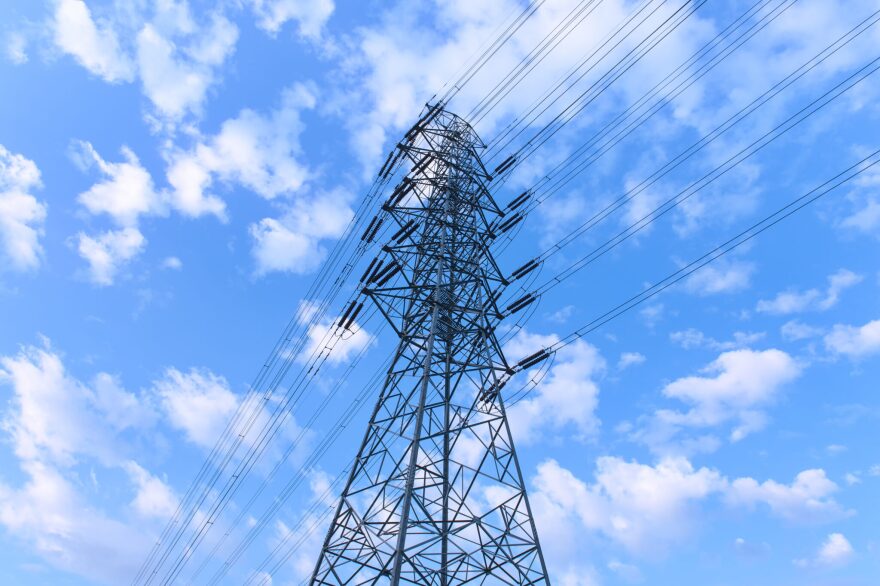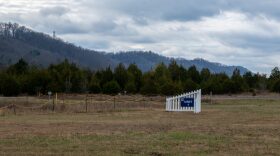A group of Tennessee electricity providers is taking early steps toward turning part of the West Tennessee Megasite into a power plant designed to generate extra power when demand peaks.
The cooperative has its eye on about 100 acres located near a new substation the Tennessee Valley Authority built to help power the megasite and its tenants, including Ford’s massive BlueOval City electric vehicle and battery manufacturing campus.
The group wants to resurrect the Tennessee Power Distribution Company, a nonprofit, tax-exempt electricity generation and transmission “co-op of co-ops” created in 1999 in case local electricity distribution became an open market.
The power industry didn’t experience such a transition, so co-ops are considering other uses for the company, according to Mike Knotts, CEO of the Tennessee Electric Cooperative Association, a group of 23 nonprofit electric co-ops that serve more than 2.5 million Tennesseans. The co-ops purchase their energy from TVA and distribute it locally to customers, accounting for about 25% of the federally-owned public utility’s annual revenue, Knotts said.
“This started back at Christmas Eve of 2022 when we experienced a first for our area — which was rolling blackouts — where there was simply not enough capacity to produce energy in the TVA service territory,” said Knotts, who also serves as Tennessee Power Distribution Company president. “So we as local utilities were called upon to, in rolling increments … turn your power off.”
Winter Storm Elliott plunged much of Tennessee into single-digit temperatures that year, and mechanical failure combined with historically high electricity demand resulted in the rolling blackouts. The utility made multiple changes to its emergency communications procedures and fortified its facilities to try to withstand frigid conditions the following year.
Knotts told members of the West Tennessee Megasite Authority on Wednesday that the group sought to ensure this would never happen again and landed on the idea of building a “peaking facility” themselves.
Such facilities are intended to operate only when electric consumption needs reach extreme highs, running about 10-20% of the year, Knotts said. The site would generate power using simple cycle combustion turbines powered by natural gas. These turbines do not generate steam and as a result have little discharge water.
The Tennessee Power Distribution Company would then sell that power to TVA to be distributed where it’s needed.
The long process ahead
The Tennessee Electric Cooperative Association, with TVA’s cooperation, completed a site selection study to determine how and where the cooperative could “build assets to produce energy that could complement what TVA does and not disturb the contractual relationship between our cooperatives and TVA,” Knotts said.
The study focused on the Megasite property adjacent to the TVA substation — it’s close to transmission infrastructure, the interstate and a natural gas pipeline installed to serve BlueOval City.
Knotts said the group has had “fruitful” conversations with state officials, and it’s time to move on to more formal arrangements. The cooperative is negotiating with TVA, he said, and will soon start the roughly two-year process of applying to connect to the power transmission grid.
Ultimately, Knotts said the project would need a binding letter of intent and then a long-term lease agreement for the land from the Megasite Authority. The project also would need the blessing of the State Building Commission and must clear a federal interconnection study.
Several Megasite Authority board members posed questions about the proposed facility’s impact, including potential nitrous oxide emissions. Knotts said the facility would require an air quality permit from the Tennessee Department of Environment and Conservation.
The Megasite Authority board did not take formal action on the issue Wednesday, but each member of the board expressed interest in learning more about the proposal at a September meeting.
Knotts said while he does not speak for TVA, the utility has “stated publicly that it has a deficit for capacity,” in addition to a debt cap set by federal law limiting how many new generation projects TVA can take on.
“Plants like this are going to be built, so our members decided, jointly, we would rather do this, given our service mission, given we are nonprofit entities … than outsource it to a for-profit company,” he said.
This story was originally published by the Tennessee Lookout.





